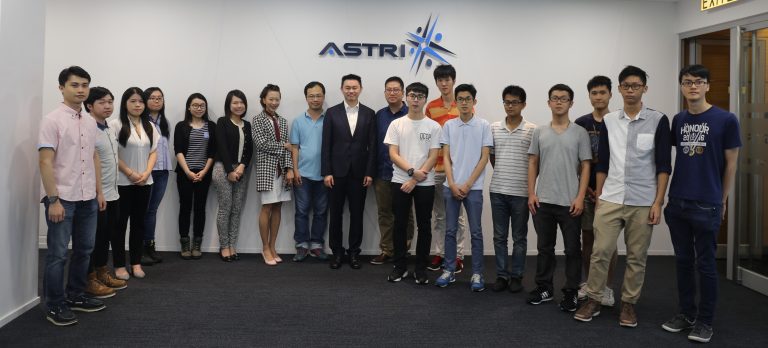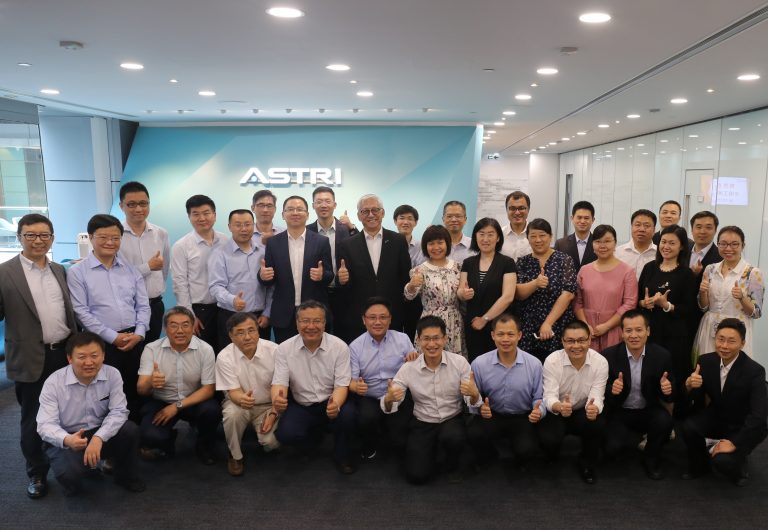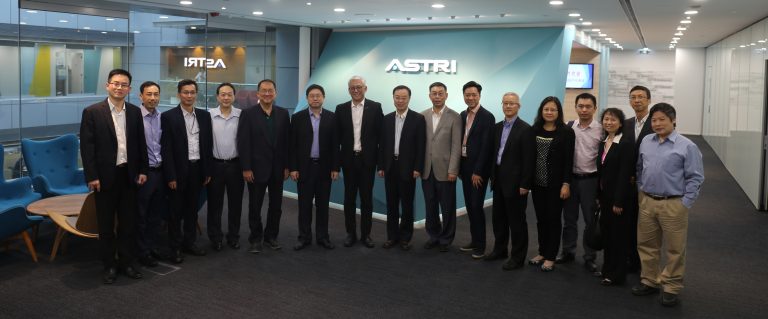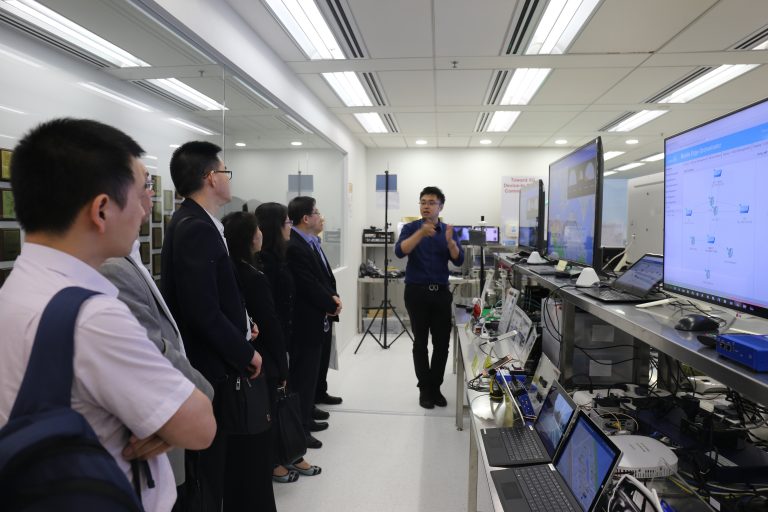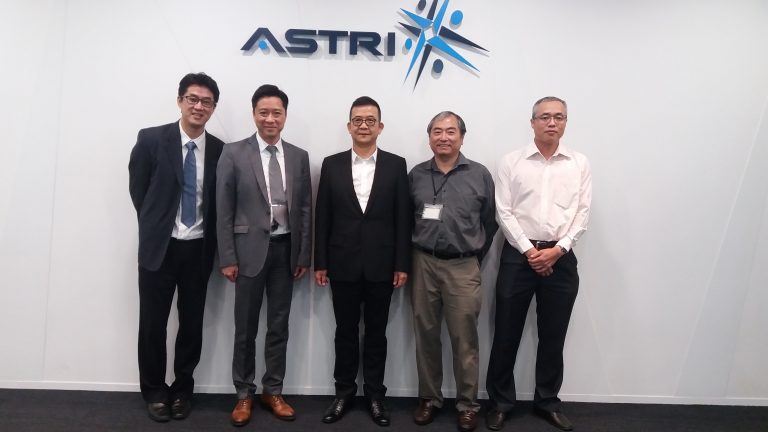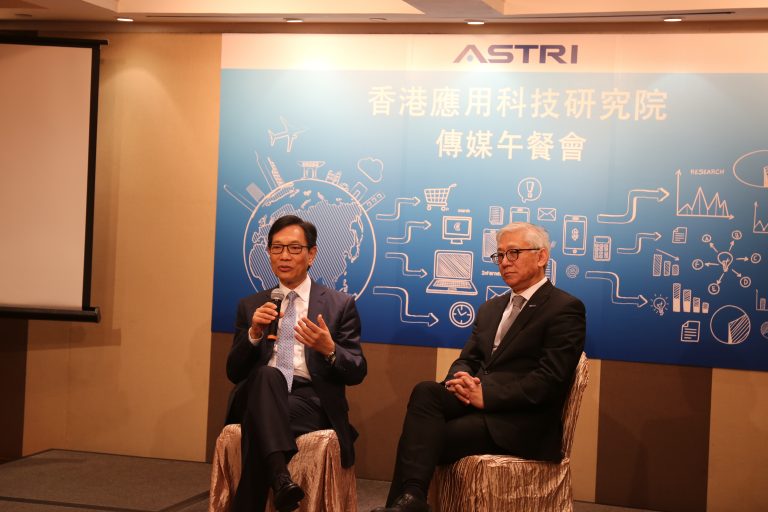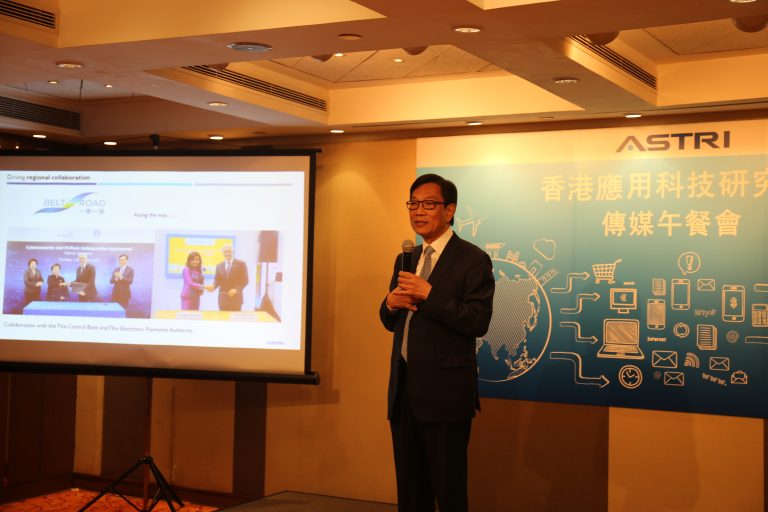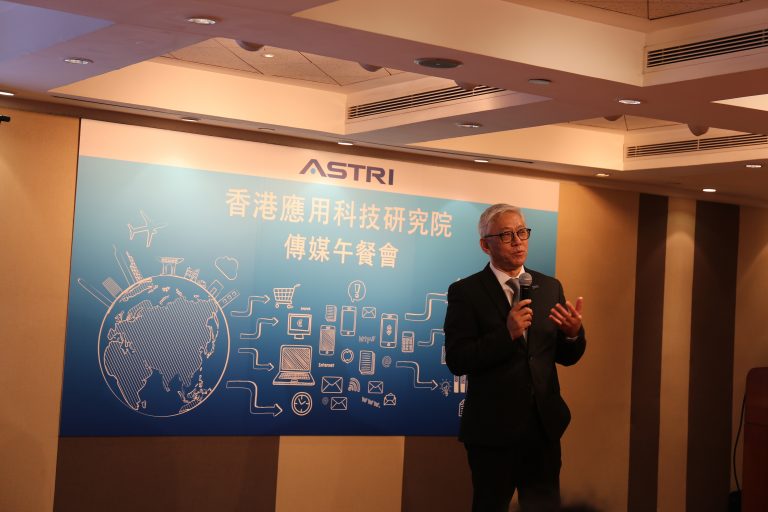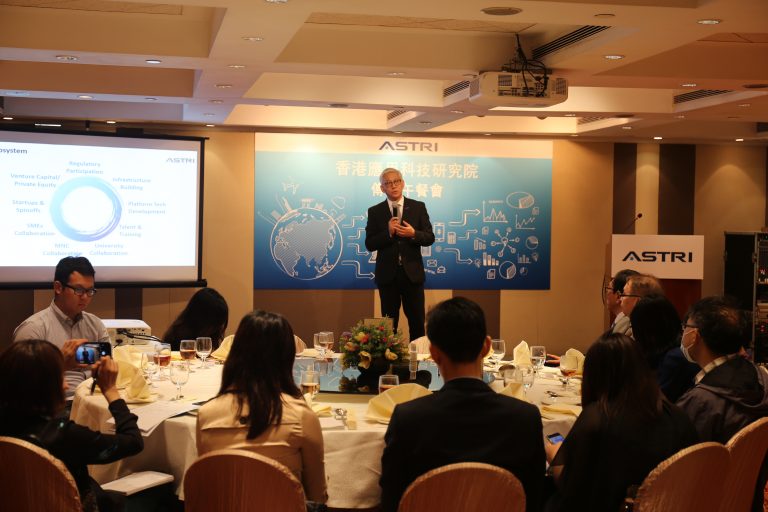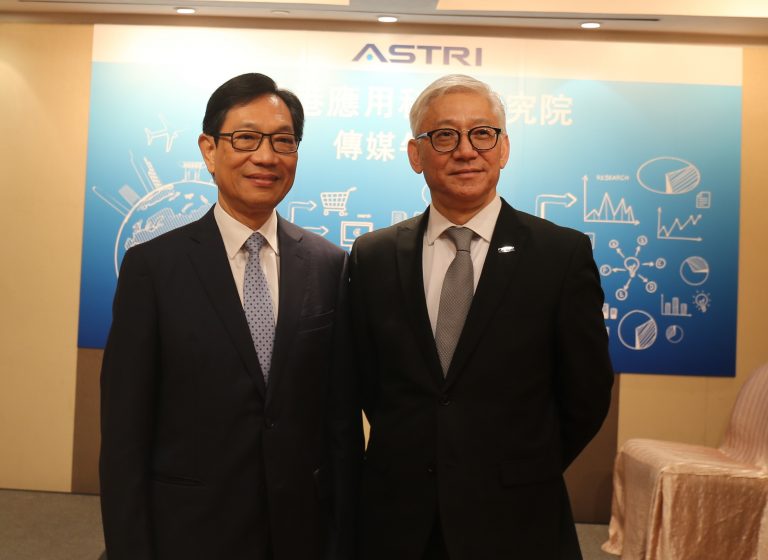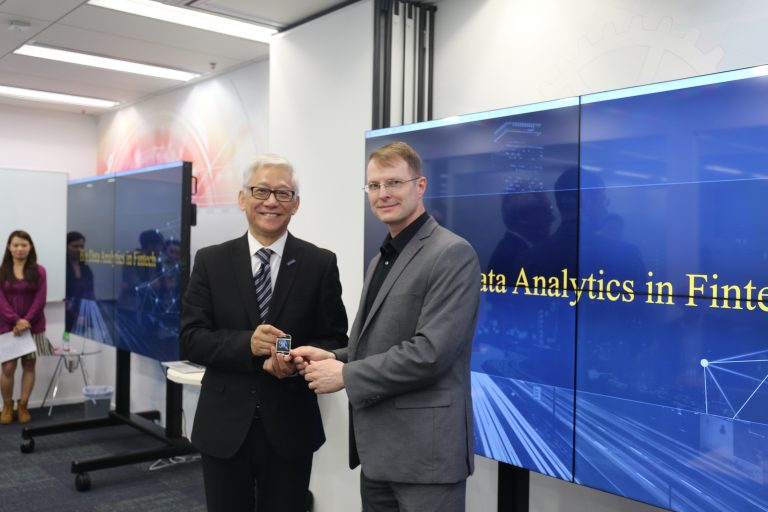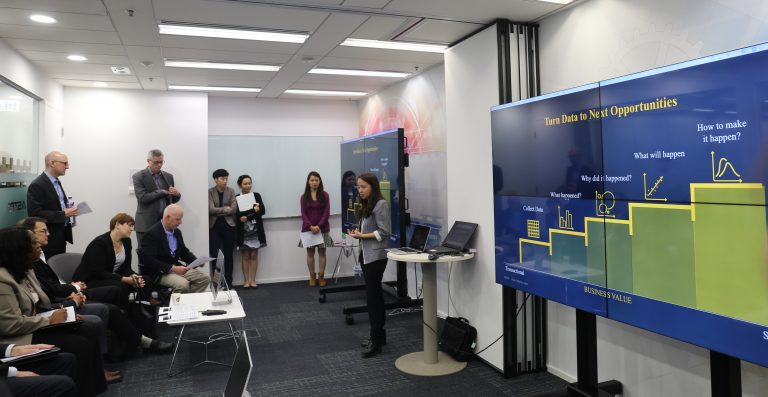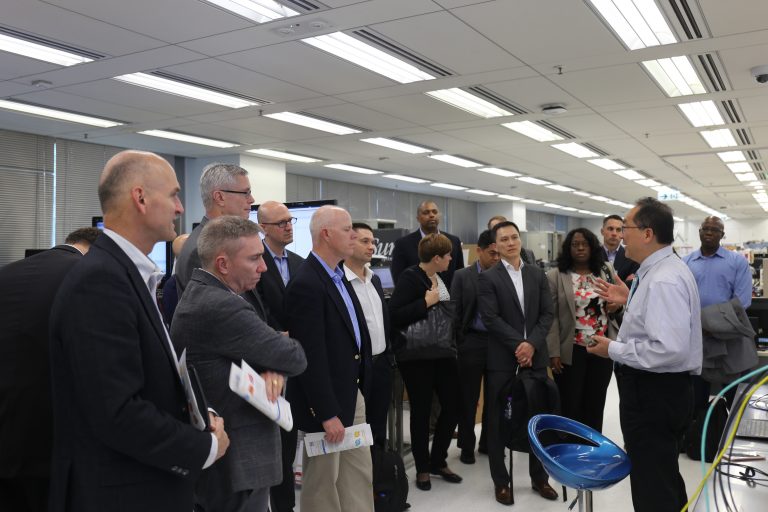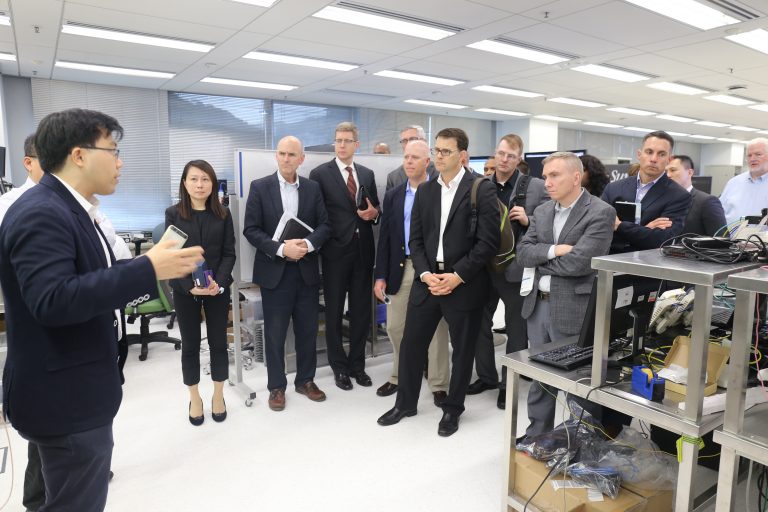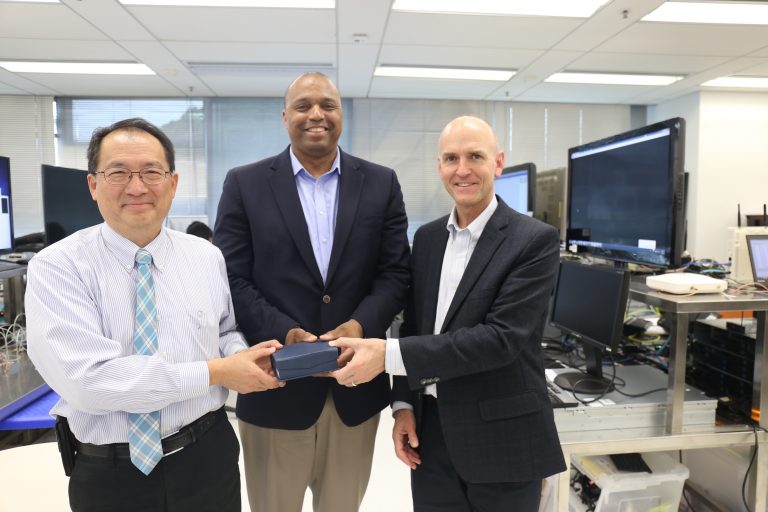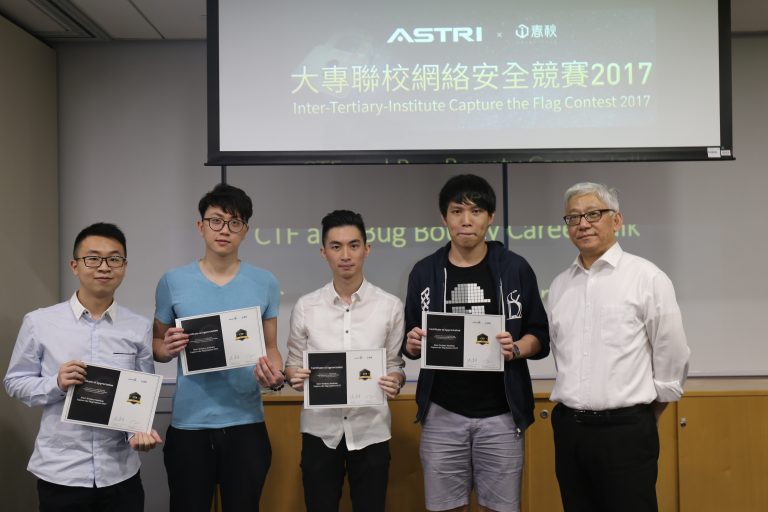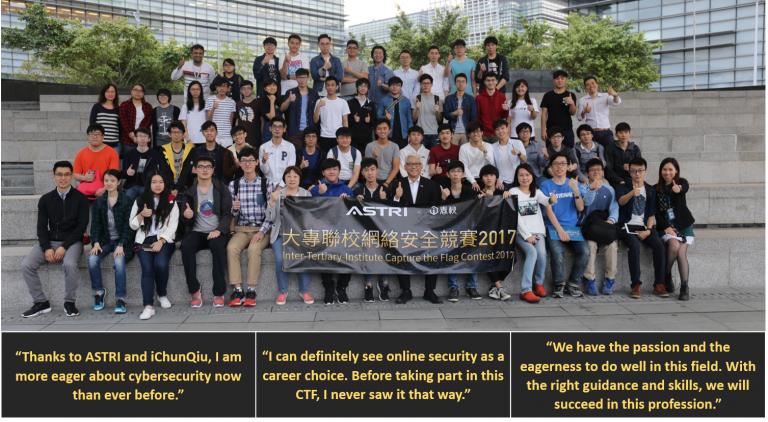“Innovation and Technology” has been identified as one of the Six Industries to be able to grant Hong Kong greater advantages and potential in sustainable development. Investment in youth education plays a crucial role to that end. To acknowledge the importance of investing in the youth of Hong Kong, the Government’s Innovation and Technology Commission, HSBC and The Hong Kong Federation of Youth Groups (HKYFG) jointly introduced the Innovation and Technology Scholarship Award Scheme in 2011 for the young talents.
The Award Presentation Ceremony of the 2017 Innovation and Technology Scholarship Award Scheme took place at the Hong Kong Convention and Exhibition Centre on 25 April 2017. 25 outstanding local undergraduates have received their certificates.
The event was attended by distinguished guests including Mr Nicholas W Yang, JP, Secretary for Innovation and Technology; Mr Bernard Chan, GBS, JP, Member of the Hong Kong SAR Executive Council and Chairman of the Awardee Selection Committee; Mr Wong Ming-yam, BBS, JP, Chairman of the ASTRI Board of Directors; Mr Raymond Cheng, Group General Manager and Chief Operating Officer, HSBC Asia Pacific; Ms Annie Choi Suk-han, JP, Commissioner for Innovation and Technology of the HKSAR Government and Board Director of ASTRI; and Dr Rosanna Wong, DBE, JP, Executive Director of HKYFG.
Other than a scholarship of up to HK$150,000 support to each awardee for Overseas/Mainland Attachment Programme, they will also participate in the Mentorship Programme, Service Projects and Optional Local Internship, in the coming months.
The aim of this Scheme is to offer outstanding undergraduates of Hong Kong the opportunity to widen their international exposure, gaining industry experience, and nurture their passion and commitment toward science and technology.
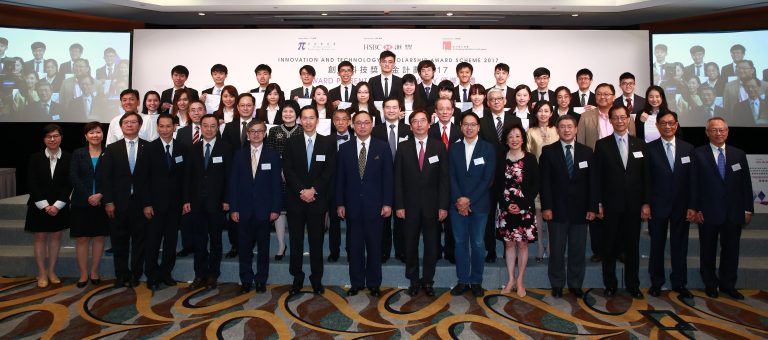
The winning students with a group of distinguished guests including (From left to right of the first row) Ms Annie Choi Suk-han, JP, Commissioner for Innovation and Technology of the HKSAR Government and Board Director of ASTRI; Prof Nancy Ip Yuk-yu, Dean of Science, The Morningside Professor of Life Science, and Director of the State Key Laboratory of Molecular Neuroscience at Hong Kong University of Science and Technology and former Board Director of ASTRI; Mr Willy Lin Sun-mo, SBS, JP, Chairman of Hong Kong Productivity Council; Dr Davy Lo Kwok-wai, Board Director of ASTRI; Mr Liu Zhi-ming, the Deputy Inspector of the Department of Educational, Scientific and Technological Affairs of the Liaison Office of the Central People’s Government in the Hong Kong Special Administrative Region; Dr David Chung Wai-keung, Under Secretary for Innovation and Technology Bureau of the HKSAR Government; Hon Bernard Charnwut Chan, GBS, JP, Membership of Executive Council of the HKSAR Government; Mr Nicholas W Yang, JP, Secretary for Innovation and Technology of the HKSAR Government; Mr Raymond Cheng, Group General Manager and Chief Operating Officer, HSBC Asia Pacific; Hon Charles Peter Mok, JP, Member of the Legislative Council of the HKSAR Government; Dr Rosanna Wong, DBE, JP, Executive Director of HKYFG; Mr Cheuk Wing-hing, JP Permanent Secretary for Innovation and Technology, Innovation and Technology Bureau of the HKSAR Government and former Board Director of ASTRI; Prof Timothy Tong, JP, President of The Hong Kong Polytechnic University Mr Wong Ming-yam, BBS, JP, Chairman of the ASTRI Board of Directors and Dr Roy Chung Chi-ping, BBS, JP, Co-founder; former Executive Director of Techtronic Industries Company Limited and former Board Director of ASTRI; and Dr Frank Tong (4th from right of the 2nd row) CEO of ASTRI, attended the ceremony.
